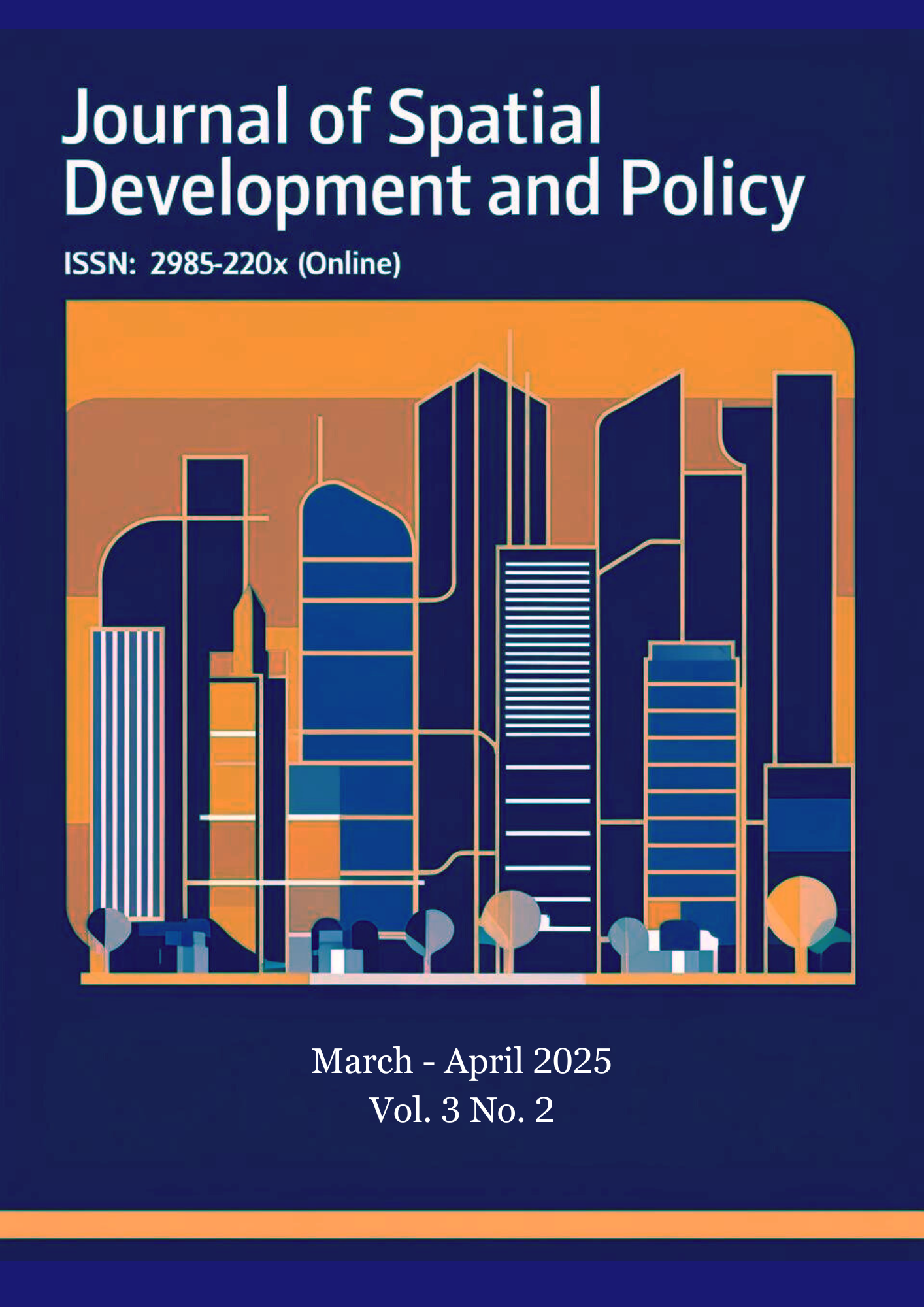รูปแบบการส่งเสริมความเป็นอยู่ที่ดีอย่างยั่งยืนในอุตสาหกรรมท่องเที่ยวไทย
Main Article Content
บทคัดย่อ
บทความวิจัยนี้มีวัตถุประสงค์เพื่อศึกษา (1) บริบทและประเด็นของความเป็นอยู่ที่ดีอย่างยั่งยืนในมิติการจัดการการท่องเที่ยว และ (2) รูปแบบการส่งเสริมความเป็นอยู่ที่ดีอย่างยั่งยืนในอุตสาหกรรมการท่องเที่ยวไทย การวิจัยครั้งนี้เป็นการวิจัยเชิงคุณภาพด้วยเทคนิคพหุวิธี (Multi-method) ระหว่างการวิเคราะห์เนื้อหา (Content analysis) ร่วมกับการสัมมนาอ้างอิงผู้เชี่ยวชาญ (Connoisseurship) เก็บรวบรวมข้อมูลด้วยจากกลุ่มผู้ให้ข้อมูลสำคัญระหว่างเดือนตุลาคม พ.ศ. 2567 - มกราคม พ.ศ. 2568 แบ่งออกเป็น 2 กลุ่ม ประกอบด้วย อาจารย์ประจำในมหาวิทยาลัยกำกับของรัฐ 12 คน และตัวแทนผู้บริหารระดับกลยุทธ์ในกลุ่มธุรกิจท่องเที่ยวเชิงสุขภาพและบริการ ในเขตกรุงเทพมหานคร 5 คน ผลการศึกษาพบว่า 1) กลุ่มธุรกิจโรงแรมและธุรกิจการจัดงานอีเวนต์ให้ความสำคัญกับการสร้างประสบการณ์ที่น่าประทับใจด้วยการหันมาใส่ใจการจัดการทรัพยากรอย่างยั่งยืนผ่านมาตรฐานต่าง ๆ รวมทั้งให้ความสำคัญกับการลดปริมาณมลพิษในการกระบวนการให้บริการ ในขณะที่แหล่งท่องเที่ยวชุมชนท้องถิ่นได้นำเอกลักษณ์วัฒนธรรมมาเป็นจุดขาย แต่ต้องคำนึงถึงผลกระทบด้านสิ่งแวดล้อมควบคู่กันไป 2) อุตสาหกรรมท่องเที่ยวที่ยั่งยืนต้องคำนึงถึงสามมิติสำคัญ ได้แก่ (1) การสร้างความร่วมมือกับชุมชน โดยส่งเสริมให้ชุมชนเป็นผู้บริหารจัดการและได้รับผลประโยชน์โดยตรง (2) การนำเสนอวัฒนธรรม ผ่านการสัมผัสประสบการณ์ทางวัฒนธรรม อาหารท้องถิ่น และการแพทย์แผนไทย และ (3) การรักษาสิ่งแวดล้อมและการใช้วัสดุที่เป็นมิตรต่อสิ่งแวดล้อม โดยส่งเสริมการท่องเที่ยวคาร์บอนต่ำ การใช้ทรัพยากรอย่างคุ้มค่า และการเลือกใช้วัสดุที่ย่อยสลายได้ตามธรรมชาติ
Article Details

อนุญาตภายใต้เงื่อนไข Creative Commons Attribution-NonCommercial-NoDerivatives 4.0 International License.
เอกสารอ้างอิง
การท่องเที่ยวแห่งประเทศไทย. (2565). Wellness Tourism by Numbers. สืบค้นจาก https://tatreviewmagazine.com/.
ระชานนท์ ทวีผล. (2563). การดำรงอยู่ของธุรกิจที่พักที่ไม่ใช่โรงแรมบนพื้นฐานแห่งธรรมาภิบาล กรณีศึกษาธุรกิจโฮสเทล ในเขตอำเภอหัวหิน จังหวัดประจวบคีรีขันธ์. วารสาร มทร. อีสาน ฉบับมนุษยศาสตร์และสังคมศาสตร์, 7(2) 16-35.
สุปชา เพชรโสม และ สุวารี นามวงค์. (2567). ความสัมพันธ์เชิงสาเหตุต่อกิจกรรมการท่องเที่ยวเชิงสุขภาพ ทัศนคติที่มีต่อกิจกรรมเพื่อสุขภาพ การคล้อยตามกลุ่มผ่านสื่อสังคมออนไลน์ ความพึงพอใจต่อกิจกรรมเพื่อสุขภาพ และความตั้งใจที่จะเข้าร่วมกิจกรรมเชิงสุขภาพกรณีศึกษากลุ่มชายฝั่งทะเลภาคตะวันตก. วารสารรัชต์ภาคย์, 18(60), 243-253.
Alamineh, G. A., Hussein, J. W., Mulu, Y. E., & Taddesse, B. (2023). The negative cultural impact of tourism and its implication on sustainable development in Amhara Regional State. Cogent Arts & Humanities, 10(1), 2224597.
Aytaş, G., Ergen, F. D., & Aytekin, E. (2024). Wellness Tourism After the Pandemic. In Future Tourism Trends Volume 1: Tourism in the Changing World (pp. 285-298). Leeds, England: Emerald Publishing Limited.
Bagheri, F., Guerreiro, M., Pinto, P., & Ghaderi, Z. (2024). From tourist experience to satisfaction and loyalty: Exploring the role of a sense of well-being. Journal of Travel Research, 63(8), 1989-2004.
Baloch, Q. B., Shah, S. N., Iqbal, N., Sheeraz, M., Asadullah, M., Mahar, S., & Khan, A. U. (2023). IImpact of tourism development upon environmental sustainability: a suggested framework for sustainable ecotourism. Environmental science and pollution research international, 30(3), 5917–5930.
Cristache, N., Murariu, S., & Chihaia, A. (2023). Changes in tourist behavior in the context of the covid-19 pandemic. Annals of the Academy of Romanian Scientists Series on Economy, Law and Sociology, 6, 106-124.
Dini, M., & Pencarelli, T. (2021). Wellness tourism and the components of its offer system: a holistic perspective. Tourism Review, 77(2), 394-412.
Drisko, J. W., & Maschi, T. (2016). Content analysis. New York: Oxford university press.
Filep, S., Moyle, B. D., & Skavronskaya, L. (2024). Tourist wellbeing: Re-thinking hedonic and eudaimonic dimensions. Journal of Hospitality & Tourism Research, 48(1), 184-193.
Gantait, A., Mathew, R., Chatterjee, P., & Singh, K. (2024). Community-Based Tourism as a Sustainable Direction for the Tourism Industry: Evidence from the Indian Sundarbans. In Interlinking SDGs and the Bottom-of-the-Pyramid Through Tourism (pp. 197-217). New York: IGI Global.
Global Wellness Institute. (2024). Wellness Tourism Initiative Trends for 2024. Retrieved from https://globalwellnessinstitute.org/global-wellness-institute-blog/2024/04/30/wellness-tourism-initiative-trends-for-2024/.
Guerra, R. J., Trentin, F., & Vila-Chã, C. (2022). New sustainable practices in health and wellness tourism destinations focused on the quality of life and wellbeing. PASOS Revista de Turismo y Patrimonio Cultural, 20(4), 871-883.
Handels, R. L., Wolfs, C. A., Aalten, P., Bossuyt, P. M., Joore, M. A., Leentjens, A. F., & Verhey, F. R. (2014). Optimizing the use of expert panel reference diagnoses in diagnostic studies of multidimensional syndromes. BMC neurology, 14, 1-9.
Huang, X., Wang, P., & Wu, L. (2024). Well-being through transformation: An integrative framework of transformative tourism experiences and hedonic versus eudaimonic well-being. Journal of Travel Research, 63(4), 974-994.
Indapurkar, K. (2024). From Temples to Tranquillity: The Role of Religious and Wellness Tourism in India's Sustainable Future. In Interlinking SDGs and the Bottom-of-the-Pyramid Through Tourism (pp. 218-246). Pennsylvania: IGI Global.
Kimunio, I., Nandelenga, M. W., & Makambi, S. (2024). Tourism Degrowth in the New Normal: Exploring the Impacts of COVID-19 on Sustainable and Equitable Tourism Development. In Tourist Behavior and the New Normal, Volume II: Implications for Sustainable Tourism Development (pp. 281-297). Cham: Springer Nature Switzerland.
Liu, L., Zhou, Y., & Sun, X. (2023). The impact of the wellness tourism experience on tourist well-being: The mediating role of tourist satisfaction. Sustainability, 15(3), 1872.
Młynkowiak-Stawarz, A. (2023). Do Polish tourists want wellbeing tourism? Preferences for wellbeing tourism versus the psychological wellbeing of individuals. E-mentor, 99(2), 56-68.
Segarra, E., Brito, L. M. Y., Guapi, F., & López, C. (2024). Impact of COVID-19 on tourism: An economic and social review. Green World Journal, 7(2), 149.
Tharikh, S., & Hamzah, S. (2020). Application of the Wellbeing Theory on Air Traffic Controllers: A Model on How to Flourish in Practice at the Workplace. The International Journal of Academic Research in Business and Social Sciences, 10(5), 522-532.
Thurmond, A.V. (2001). The Point of Triangulation. Journal of Nursing Scholarship, 33(3), 253-258.
Tsartas, P., Falaras, T., Giannopoulos, K., Papoutsakis, C., Paraskevopoulou, G., & Rachanioti, C. S. (2022). Respoguide: integrating sustainability and wellbeing in tourism through an innovative platform. In Handbook on Tourism, Public Health and Wellbeing (pp. 139-149). Northampton, Massachusetts: Edward Elgar Publishing.
Zaika, S., & Avriata, A. (2024). Analysis of the impact of the COVID-19 pandemic on the development of the international tourism market. International Science Journal of Management, Economics & Finance. 3(2), 56-68.

